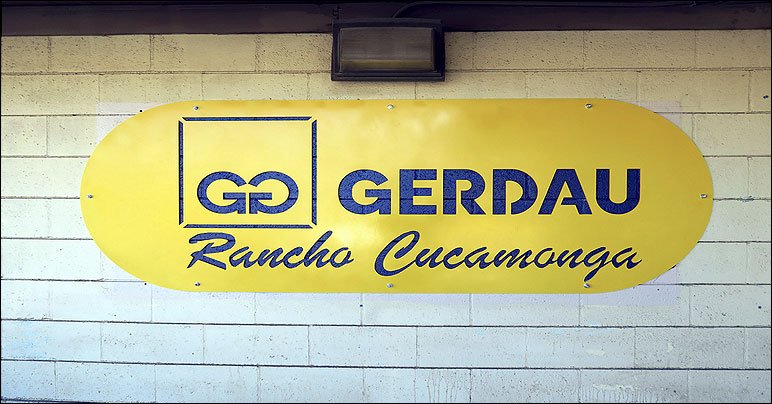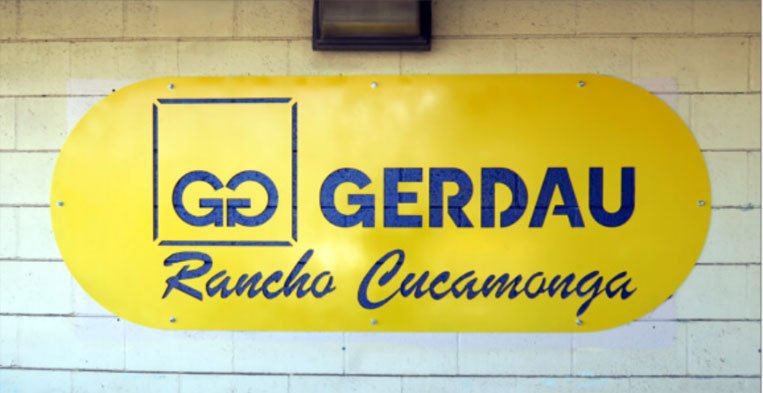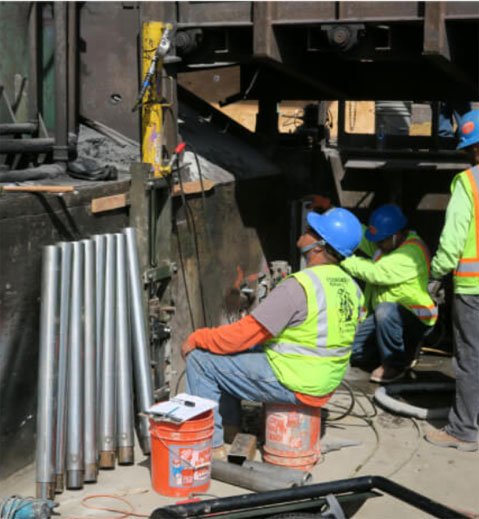HEAVY MACHINERY PAD FAILURE
Gerdau Rebar Foundry

Gerdau North America is one of the leading producers of Rebar in the United States. Rebar is used in bridges, buildings, skyscrapers, homes, warehouses, foundations and roads to increase the strength of the concrete and ultimately help hold up the structures. With construction booming, their product is in high demand.
An integral piece of machinery at their foundry, which was settling due to poor soil conditions, vibration, and the extreme high weight of the machine itself. (NKK Rebar shear- Estimated weight with concrete and steel pedestal- 70 tons). When the machine was placed in operation forty years ago, not much was done to compact the loamy sand mixed with gravel, the machinery pedestal was sitting upon. The shear is the only machine of its kind in operation at this facility, and if this machine goes off line for any reason, production stops until it is fixed.
A previous repair in 2004 required complete disassembly and removal, via 100 ton crane and a large contingent of workers, to modify the foundation base to stop settlement. The 14 ft. x 8 ft. concrete base was also wrapped in one inch steel plate adding additional weight to the now, 70 ton, NKK rebar shear and pedestal.
Amazingly, nothing was done at that time to modify or stabilize the loose soil, which resulted in the same problem of settlement reoccurring almost immediately upon completion of the earlier repair procedures

Initial investigation of the site was performed with a detailed machinery plan set in hand. During the shear operation inspection, mild vibration was experienced from the rebar conveyor as far out as twenty feet from the shear. The shear cuts hot stamped rebar into correct lengths immediately after each piece exits from the stamp mill, twenty pieces at a time. There was an additional vibration felt at each cut, increased by the loose sand and gravel soil beneath the shears pedestal. This caused undue stress and misalignment on the conveyor attachments. Multiply adjustments and costly modifications have been performed over the past thirteen years to no avail.
Foundation Technology was contracted to provide a permanent solution that would keep the foundries only shear in operation.
Results
Problem # 1: Settlement. It was determined that ECP 400 Wall mount “Resistance Push Piers” would be the most economical way to lift the machine pedestal, without completely disassembling the shear, (as in the prior repair operation).
Using a safety load factor of 2.5 times the total pedestal weight of 140,000 lbs., it was determined that a total of five piers would be installed to support the machine pedestal, giving a total of over 340,000 lbs. of additional load support.
For additional strength, each pier was filled with 14,000 psi grout. Piers were pushed to an average depth of 65 ft. and a hydraulic load of 8,600 psi.. This equated to a working load of approximately 68,000 per pier, and a total load capacity of 340,000, surpassing the 2.5 safety load factor.
Problem # 2: liquefaction of the sandy soil due to vibration. Excavation during the pier installation portion of the project proved the poor soil conditions the machine pedestal was built upon. The high sand content had the potential for liquefaction due to vibration of the shear and conveyor. Something needed to be done to modify the soil for support without necessitating a complete removal and replacement of the soil bedding.
Foundation Technology determined that a fast reacting Polyurethane deep injection would compact and stabilize the soil, offering additional stability against vibration.

The complete project was completed in ten days, and there hasn’t been a shutdown due to misalignment of the shear in four years.


